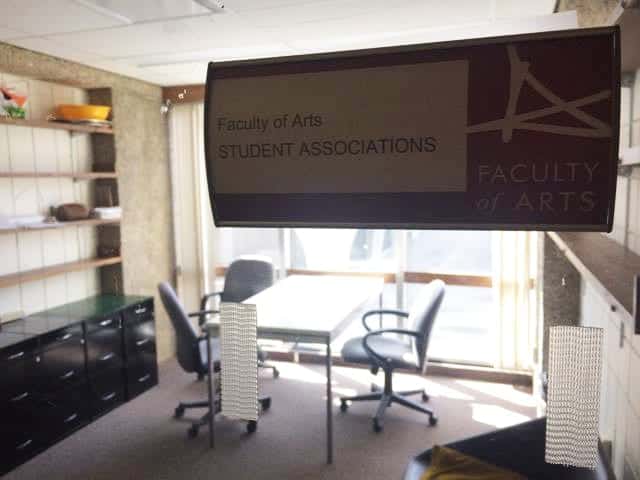
Saskatchewan’s first annual capacity-building conference
Bill Clinton, the 42nd President of the United States, once described non-profits as “the unsung heroes of our society, tirelessly working to tackle some of the world’s most pressing issues with passion, purpose, and unwavering commitment.” In our society where community impact is more important than ever, this sentiment cannot be understated.
The Government of Canada defines a non-profit organization as an association organized and operated exclusively for social welfare, civic improvement, pleasure, recreation, or any other purpose except profit. Non-profit organizations contribute in different ways to the larger community whilst championing causes, identifying and addressing gaps, and creating value. The inaugural “Reimagining Non-Profits” conference, hosted at Luther College at the University of Regina (U of R), serves as a stellar example of this statement.
This first-ever conference took place from October 13-14, where it was set to explore leadership for a sustainable future thus emphasizing the importance of sustainable economies, leadership models, and lives within the non-profit landscape.
This week, the Carillon got the opportunity to connect with Emily Lints, the project coordinator of Ivy + Dean Consulting, and one of the co-planners behind this groundbreaking event. Her insights offer a deeper understanding of the conference’s origins and purpose, setting the stage for a closer look at the transformative impact of the Reimagining Non-Profits conference.
The backstory to this conference is a simple but important one: “A monthly virtual Executive Director Networking session was initiated by Ivy + Dean Consulting for individuals across the province to connect, share their accomplishments, tackle challenges, and establish relationships,” noted Emily Lints.
The realization then emerged that a substantial capacity-building opportunity for organizations across Saskatchewan did not exist. In the post-COVID era, a shift within the sector appeared, bringing forth the crucial need for in-person interactions to reassess approaches to non-profit leadership. As such, the conference set to offer training sessions on topics like governance, recruitment and retention, collaborative leadership, fund development, and more.
Beyond the formal sessions, the conference was designed to create spaces for meaningful conversations. These ranged from Indigenous staff networking to Executive Director networking and non-profit staff networking, thereby acknowledging that each group brings unique perspectives, concerns, and successes to the table. According to Lints, “We recognized that each of these groups have different values, concerns, and successes to share based on their position or identity, so it was important for us to create both physical and scheduled space for these conversations to happen.”
This first annual event, which unfolded over two days, echoes the essence of what non-profits represent: community impact, purpose, and commitment. Reimagining Non-Profits is made possible through a collaborative partnership with Ivy + Dean Consulting, the Nonprofit Voluntary Sector Studies Network at Luther College, and the Saskatchewan Nonprofit Partnership. It is within this collaboration that Lints conveys the role that the conference plays in nurturing a new generation of leaders.
As the very name of the conference suggests, the event is a call to reimagine, revamp, and reinvent the non-profit landscape. It is an opportunity for leaders and professionals in the non-profit sector to envision new possibilities and pioneer innovative approaches. Lints reasserts: ‘’Simply by offering a space for non-profit professionals from across Saskatchewan to gather, we believe our conference will incite change and innovation.”
The conference featured keynote speaker Liz Weaver, who holds the position of Co-CEO at the Tamarack Institute. Weaver is widely recognized for her thought leadership on collective impact and community leadership, with a body of work encompassing both popular and academic papers on these subjects. Her involvement in the conference was two-fold. She delivered a presentation titled “Navigating the Shifting Sands of Leadership” and led a workshop titled “Building Sustainable and Resilient Collaborations.”
General registration for the conference was priced at $125 and it is noteworthy that the conference’s impact went beyond its impressive array of sessions and the keynote presentation. The organizers extended a generous offer by providing sponsored tickets as well to ensure that a broader audience could participate. Notably, this inclusive approach was also extended to students at U of R who are enrolled in the Nonprofit Sector Leadership and Innovation Certificate Program, whether as part of the concurrent program or as a standalone certificate.
Attendees – who included non-profit professionals, volunteers, and students across Saskatchewan – were poised to gain hard and soft skills, covering a diverse array of topics from employment law to integrating trauma practices into their work. Notably, the selection of sessions was a conscious one, designed to provide all the attendees with training that often eludes them in more localized or regional capacity-building workshops.
The choice of the conference theme, “Leadership for a Sustainable Sector,” is a testament to the event’s commitment to addressing contemporary challenges. Lints highlighted that, “With the rise of burnout, increased employee and volunteer turnover, and the larger importance of economic and climate action, ‘sustainability’ became a word that encompassed all these concerns. We take that word to not only include environmental sustainability and other UN Sustainable Development Goals, but also the sustainability of our own mental health and organization goals.”
The event wrapped up with a networking evening at the Hotel Saskatchewan, facilitating larger conversations with all the attendees from across Saskatchewan and sharing of thoughts through a fireside chat of organization leaders. It was an evening of networking with a cash bar and appetizers along with entertainment and a fireside chat with Risa Payant of Ivy + Dean Consulting and Donna Ziegler of the South Saskatchewan Community Foundation.
This evening encouraged the sharing of valuable insights, fostering connections and strengthening bonds within the non-profit community. The Reimagining Non-Profits Conference can be seen as that catalyst providing non-profits the pro-tip to be successful. This conference served to exemplify the commitment of non-profits to creating a positive change in Canada. To access the different resources presented during the conference, you can navigate to the conference’s official website Reimagining Nonprofits (reimaginingsask.ca).








